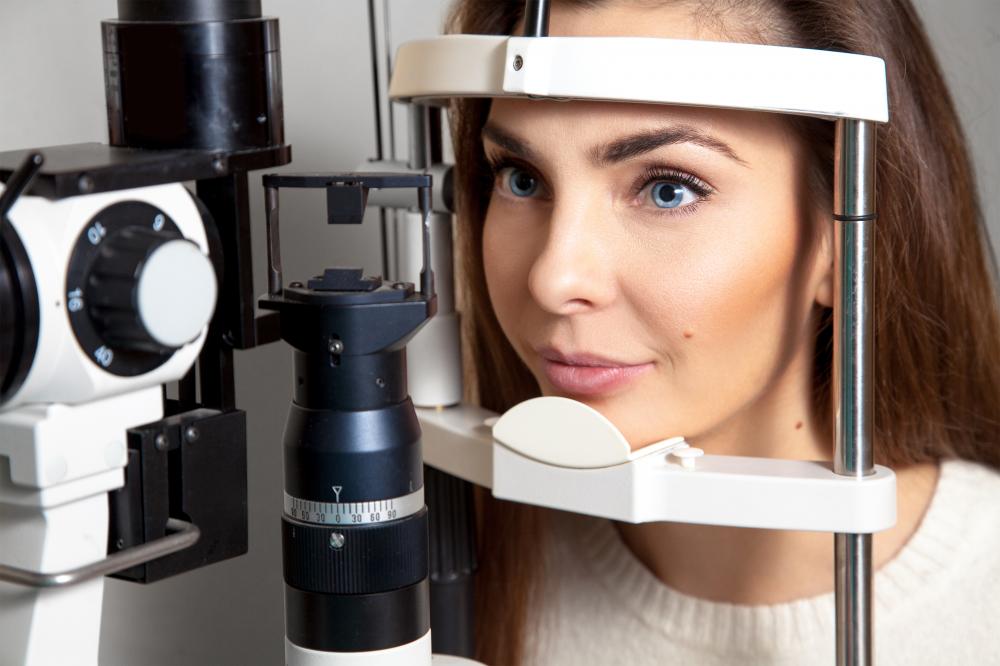Bradenton Cataract

Understanding Bradenton Cataract
Bradenton cataract is more than a medical condition; it's a journey that many embark on, especially as they age. Within the Coastal Eye Institute, we've seen firsthand the impact a cataract diagnosis can have on an individual. The cloudy vision, the diminishing color vibrancy, and the challenge of night-time driving are more than mere inconveniences; they are alarms signaling a change in one's quality of life.
Our commitment to addressing Bradenton cataract stems from a deep understanding of these challenges. Our specialized team of fellowship-trained ophthalmologists approaches each case with a blend of compassion, expertise, and the latest in medical advancements. Together, we navigate the path towards clearer vision with our patients, making the journey less daunting.
The Signs and Symptoms
Early DetectionRecognizing the early signs of cataract can significantly alter the course of treatment. In Bradenton cataract cases, symptoms often develop slowly and can be easily dismissed as a normal part of aging. However, symptoms like cloudy or blurred vision, difficulty with night vision, and sensitivity to light should not be ignored. Regular eye examinations are crucial for early detection and management.
Treatment Options
At Coastal Eye Institute, we believe in personalized care. Not all Bradenton cataract cases require immediate surgery, and some may be managed with the right eyewear. However, when surgery becomes necessary, our patients can take comfort in knowing they're in the hands of experts.
Cataract surgery involves the removal of the cloudy lens and the placement of an artificial lens, a procedure that boasts high rates of success and patient satisfaction. Recovery is typically swift, with many experiencing improved vision almost immediately after surgery.
Novel ApproachesIn keeping with our commitment to advanced care, we continually explore novel approaches to cataract treatment. This includes staying abreast of technological advancements in lens implants and surgical techniques. Our goal is to offer options that not only address vision impairment but also cater to the lifestyle needs of our patients.
Lifestyle Adjustments
While cataracts are largely considered an inevitable part of aging, certain lifestyle adjustments can play a role in managing or even delaying their development. We advise our patients to protect their eyes from excessive UV light exposure, maintain a healthy diet rich in antioxidants, and avoid smoking. These measures, combined with regular eye exams, can make a significant difference in eye health.
Patient Experiences
Nothing speaks louder about the effectiveness of our approach to Bradenton cataract than the stories shared by our patients. From regaining the ability to drive at night to enjoying the vibrant colors of a sunset, the impact of successful cataract surgery extends far beyond improved vision--it's about reclaiming life's beautiful moments.
One patient recounted the joy of seeing clearly for the first time in years, a testament to the skill and dedication of our surgical team. Another shared the ease with which they adapted to life post-surgery, highlighting the comprehensive care and support provided by our staff.
Choosing the Right Care
Deciding on the right path for addressing Bradenton cataract is a significant choice--one that should be made with both information and intuition. At Coastal Eye Institute, we are dedicated to providing not just the expertise but also the understanding needed to make this decision. Our transparent approach to discussing treatment options, outcomes, and expectations is designed to empower our patients.
The journey through Bradenton cataract treatment is unique for everyone. It's a path that can lead to not just clearer vision but also a brighter outlook on life. At Coastal Eye Institute, we're honored to be a part of this transformative experience, ensuring that each step is taken with confidence and care.
Looking Forward
- Embracing technological advancements in eye care
- Enhancing our personalized approach to treatment
- Expanding our community outreach and education efforts
- Continuing to learn from our patients' experiences
In the landscape of eye health, Bradenton cataract represents both a challenge and an opportunity. It's a condition that touches the lives of many, but with the right care, it can also mark the beginning of a new, clear-sighted journey. At Coastal Eye Institute, we are committed to being the trusted companion on this journey, guided by expertise, compassion, and a relentless pursuit of excellence in eye care.

What is the new treatment for cataracts?
Exploring the frontier of cataract treatment, we at Coastal Eye Institute are excited to delve into the latest advancements that have significantly transformed patient outcomes. Among these, one promising development is the use of advanced intraocular lenses (IOLs) which not only clear the vision but also correct it at various distances, potentially reducing the reliance on glasses post-surgery. Another innovative approach is laser-assisted cataract surgery, which offers precision and potentially a quicker recovery for patients, enhancing the traditional surgical process remarkably. These advancements reflect our commitment to incorporating cutting-edge technology to ensure the best possible care for our patients. Have you considered how these new treatments could impact your vision or that of someone you know?
At what stage should cataracts be removed?
Deciding the right time to remove a cataract is a nuanced process that involves a close consultation between the patient and their ophthalmologist. At Coastal Eye Institute, we emphasize that the decision isn't solely based on the cataract's development stage but rather on how it affects the individual's quality of life. If activities like reading, driving, or even simple tasks become challenging due to visual impairments caused by cataracts, it might be time to consider surgery. Every patient's situation is unique, and we're here to provide personalized advice on the best course of action. Have you noticed changes in your daily activities that could be due to cataracts?
What are the negatives of cataract surgery?
While cataract surgery is known for its high success rate and safety, as with any surgical procedure, it does carry some risks. Potential negatives may include post-surgery inflammation, infection, or the rare occurrence of posterior capsule opacification, where the lens capsule becomes cloudy again. It's also possible for patients to experience temporary dry eye or light sensitivity. At Coastal Eye Institute, our pre- and post-operative care protocols are designed to minimize these risks, ensuring a smooth recovery process. It's essential for patients to communicate openly with us about any concerns or symptoms they may experience after the procedure. Have you had any reservations about cataract surgery that we can help clarify?
What makes cataracts suddenly worse?
Cataracts typically develop slowly over time, but certain factors can accelerate their progression, making it seem as if they've suddenly worsened. Factors such as uncontrolled diabetes, smoking, excessive UV light exposure, and certain medications, including steroids, can contribute to a faster deterioration of the lens. It's crucial to manage these risk factors and maintain regular eye check-ups to monitor the cataract's development. At Coastal Eye Institute, we provide guidance on how to slow down cataract progression and protect your vision. Are you taking steps to protect your eyes from factors that could make cataracts worse?
What lifestyle adjustments can help manage or delay the development of cataracts?
Making specific lifestyle adjustments can play a significant role in managing or even delaying the onset of cataracts. We advise our patients to adopt a diet rich in antioxidants, which can help protect the eyes from oxidative stress. Wearing sunglasses to protect the eyes from UV rays, avoiding smoking, and controlling medical conditions like diabetes are also critical measures. Regular eye exams are crucial, as they enable early detection and management. These preventative strategies underscore our belief at Coastal Eye Institute that proactive eye care can make a significant difference in maintaining long-term vision health. What changes are you considering to help protect your vision?
Resources
- National Eye Institute (NEI) - Cataract: The NEI provides comprehensive information on cataracts, including causes, symptoms, treatment options, and tips for prevention.
- Mayo Clinic - Cataracts: Mayo Clinic offers detailed insights into cataracts, covering symptoms, causes, risk factors, and various treatment approaches.
- American Academy of Ophthalmology (AAO) - What Are Cataracts?: AAO explains what cataracts are, how they develop, and the importance of early detection and treatment.
- Centers for Disease Control and Prevention (CDC) - Cataracts Fact Sheet: The CDC offers a concise fact sheet on cataracts, outlining key information about the condition and its impact on vision.